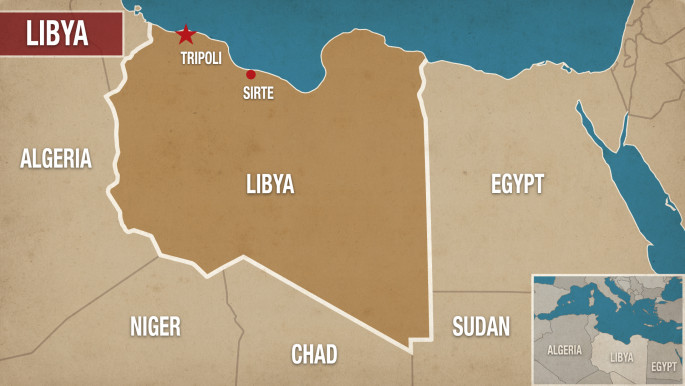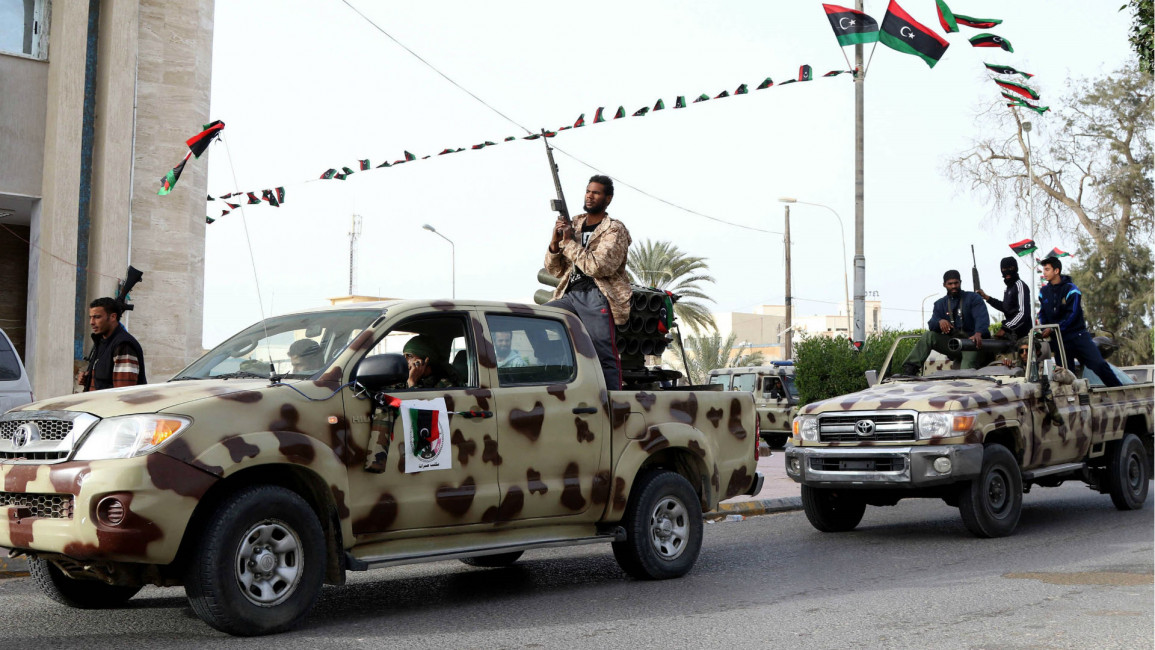
Eradicating IS in Libya and the challenges ahead
In its attempt to assert authority over the sovereignty of Libya, the Libyan Government of National Accord (GNA), based in Tripoli has condemned one international intervention in Libya and within a week, officially requested another.
Following the recent confirmation by France that three of its soldiers were killed in a helicopter crash near Benghazi in the east of Libya, the GNA summoned the French ambassador to protest against what it called a breach by France of international norms and sovereignty, and condemned it as foreign interference.
A week later, the GNA delivered a statement by its head, Fayez Sarraj, confirming that it had officially requested the help of the US government - in the form of targeted airstrikes - in the fight against the Islamic State group entrenched in their last holdouts in the centre of Sirte.
The US Department of Defence confirmed in a statement that, in response to an official request from the GNA, it had indeed conducted airstrikes on IS strongholds and that these airstrikes remained ongoing.
It has been expected that if Libyans stop fighting each other and instead assemble a reasonably strong united force to take on IS, then they would be able to confidently retake IS positions in the country, with the final showdown being the battle of Sirte.
Just as it was the place for the demise of Gaddafi, Sirte could also be the place of IS' final days in Libya.
IS has already been eradicated from their stronghold eastern city of Derna and from the western city of Sabratha, close to the Tunisian border. Libyan forces engaged in street battles with IS elements in Sabratha, following a deadly US airstrike, in which more than 40 IS commanders were killed.
 |
|
What makes IS easier to eradicate from Libya compared with Iraq and Syria is that the group controlled far less territory in Libya, with Sirte being the only city that fell under total IS control. IS in Libya also failed to seize any Libyan oil installations or gain access to Libyan oil resources.
Unlike in Iraq and Syria, IS has also failed to create or capitalise on any social or tribal divisions or other tensions within Libya, whereas in Iraq and Syria it has capitalised on the division between Sunni and Shia sects of Islam.
The numbers of IS fighters in Libya are also far fewer, estimated to be fewer than 5,000, according to US and other sources. The most recent estimate of those remnant IS forces still holding out in Sirte is put at a few hundred, according to the GNA troops who launched the battle to liberate Sirte almost three months ago.
The GNA's military commanders in the Bunyan Marsous Operations Room said on Sunday August 7: "The countdown to the final stage of the military operations against [IS] has begun," and claimed that preparations were in place for "the final and decisive battle to eradicate the [IS] gang from the city of Sirte".
It seems that the officially requested US airstrikes against snipers and ammunition depots in IS' final holdout positions in Sirte are aiding and hastening the final push by GNA forces to fully liberate Sirte. This final stage of the showdown could be swift, and deliver a total victory in Sirte which would go a long way to totally eradicating IS from Libya.
 |
Haftar has so far failed, and failed badly |  |
IS, which is totally besieged in Sirte, is not likely to regroup in any other city in Libya, including the capital Tripoli - as reports indicate that security forces there have made several arrests over the past few months of suspected IS sleeper cells, mainly non-Libyans of Arab origin.
Assuming that the battle for Sirte is won decisively by the GNA in the coming days or weeks, and having already seen the eradication of IS from their stronghold cities of Derna in the east and Sabratha in the west, the GNA will face a dilemma over which position and approach to take towards the war that has been waged in Benghazi for more than two years.
General Haftar with his "Dignity" operation has always insisted that he has been leading the fight against "terrorism" in Libya - and that his aim is to totally defeat it.
However, Haftar has so far failed, and failed badly, compared with the successes in Derna, Sabratha and - imminently - Sirte, none of which had anything to do with Haftar. There is no doubt that the various Islamist forces that Haftar has been fighting in Benghazi do have some IS affiliates among them, including foreign fighters who entered the Benghazi war more recently.
It is only after these IS elements are also taken out that we can state that Libya has put the threat of IS behind it. This may also facilitate a ceasefire and a political solution in Benghazi, which could also offer Haftar a face-saving end to his, so far, failed military operation.
 |
Reuniting the divided sovereign institutions is vital |  |
Challenges ahead
Once the cancerous danger and threat of IS in Libya has been eradicated, the GNA needs to move quickly to build on this security success and capitalise on the feel-good factor and momentum to consolidate successes in other vital areas - politically, economically and socially.
Politically, completing the task of reuniting the divided sovereign institutions is vital. These institutions include the Libyan Central Bank, the National Oil Corporation (NOC) and the Libyan Investment Authority (LIA). This, in effect, will end the dangerous institutional disintegration and divisions experienced since 2014.
Other political challenges include practical steps to facilitate a process of political and social reconciliation and consensus-building inclusive of all Libyans.
On the security front, the GNA needs to seriously consider an intrinsically conceived and developed DDR (Disengage, Disarm and Reintegrate) programme to accommodate the hundreds of thousands of young civilians carrying arms and occupying the security void. This should be done in parallel with a strategy to rebuild the vital security institutions of the army, police and other security bodies.
The GNA's socioeconomic priorities will need to focus on strengthening and making a success of recent arrangements to resume the production and export of oil, which can quickly bring in vital extra income for the country and top up its fast-depleting foreign currency reserves.
Effectively carrying this out will, in turn, lead to strengthening the value and exchange rate of the Libyan dinar against main foreign currencies, especially the US dollar.
The next six months will give a clear indication of whether Libya can recover from its deep divisions and in-fighting over power and wealth that has characterised the past two years. However, Libyans need far more than mere sentiments of optimism and a positive outlook to get their country back on track for a transition to a promising prosperous future.
They need real, genuine, new dynamics which reach out to each other to build a national consensus, instead of being deeply polarised by selfish narrow minds.
Guma El-Gamaty is a Libyan academic and politician who heads the Taghyeer Party in Libya and a member of the UN-backed Libyan political dialogue process.
Follow him on Twitter: @Guma_el_gamaty
Opinions expressed in this article remain those of the author and do not necessarily represent those of The New Arab, its editorial board or staff.




